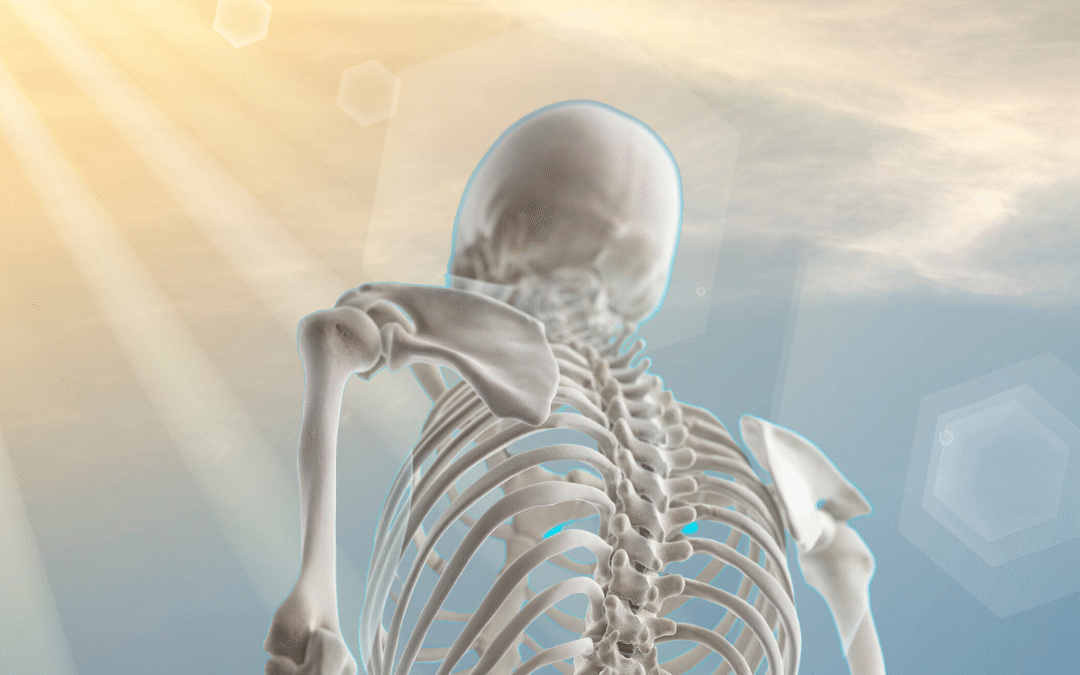
Boron for Bone Health: The Overlooked Nutrient That Supports Stronger Bones
What if I told you there’s a hidden hero in the world of bone health? A nutrient quietly working behind the scenes to strengthen your bones, support your hormones, and help your body make the most of the minerals you consume. Meet boron—a powerful yet often overlooked player in osteoporosis prevention and bone metabolism.

Boron is a trace mineral that enhances the body’s ability to use calcium, magnesium, and vitamin D efficiently, all of which are essential for strong bones. Research suggests that boron deficiency may contribute to bone loss and that getting enough boron helps improve bone mineral density (BMD), making it an essential but underappreciated nutrient for osteoporosis prevention.
What Is Boron and Why Does It Matter for Bone Health?
Boron is a naturally occurring mineral found in soil, plants, and certain foods. It plays an important role in bone metabolism by:
-
- Enhancing calcium and magnesium absorption – Boron helps your body retain and utilize calcium and magnesium, two minerals crucial for bone formation and maintenance.
- Regulating vitamin D levels – Vitamin D is essential for calcium absorption, and boron plays a supporting role by helping the body maintain optimal vitamin D levels.
- Supporting estrogen and testosterone levels – Estrogen and testosterone are both involved in bone remodeling and maintenance. Boron helps preserve estrogen levels in postmenopausal women, which can slow bone loss.
- Reducing inflammation and oxidative stress – Chronic inflammation contributes to bone breakdown, and boron has anti-inflammatory properties that help counteract this.
- Aiding in bone mineralization – Studies suggest boron helps bones retain key minerals, which may help prevent osteoporosis-related fractures.
Boron and Osteoporosis: What the Research Says
Studies show that low boron intake is associated with decreased bone density and an increased risk of osteoporosis. A study published in the Journal of Trace Elements in Medicine and Biology found that boron deficiency reduces calcium and magnesium retention, which can negatively impact bone strength.
Postmenopausal women, in particular, may benefit from adequate boron intake since estrogen levels decline after menopause, contributing to accelerated bone loss. Research suggests that boron supplementation may help slow this process, making it a valuable nutrient for women over 50 looking to protect their bones.
Best Dietary Sources of Boron
While boron is not as well-known as calcium or magnesium, you can get it naturally through food. Some of the best dietary sources of boron include:
-
- Prunes, raisins, and dried fruit
- Avocados
- Peanuts
- Apples, pears, and grapes
- Leafy greens like kale and spinach
- Chickpeas, lentils, and beans
Prunes, in particular, have been studied for their positive effects on bone health and are an excellent boron-rich food to include in your diet. Research shows that eating 4-6 prunes daily can help preserve and even reverse bone loss, particularly in postmenopausal women.
Should You Take a Boron Supplement?
While you can get boron from food, some people may benefit from supplementing, especially if their diet is low in plant-based sources. Research suggests that 3-6 mg of boron per day may be beneficial for bone health, hormone regulation, and inflammation reduction.
However, boron is just one piece of the puzzle when it comes to supplementation. Many women with osteoporosis are either missing key nutrients or taking supplements that aren’t working as well as they should due to poor absorption, medication interactions, or incorrect dosages.
Limited-Time Offer: 20% Off Your Supplement Review – Now Only $79!
Are your supplements truly supporting your bone health? Let’s find out! Now through March 28th, get a personalized Supplement Review for just $79 (normally $99)!
During your Supplement Review, we’ll take a comprehensive look at your diet, supplements, and medications to ensure you’re:
-
- Getting the right nutrients in the right amounts for optimal bone health
- Avoiding supplement interactions that may reduce effectiveness
- Using high-quality supplements with the best absorption
- Making informed choices about what to take—and what you don’t need
Many people waste money on supplements that aren’t actually helping their bones. Let’s make sure you’re supplementing smartly so that your bones and your wallet get the best possible support.
This limited-time discount expires March 28th—don’t miss your chance to save 20% and take control of your bone health!
Book your Supplement Review today and take the guesswork out of your bone health routine!




